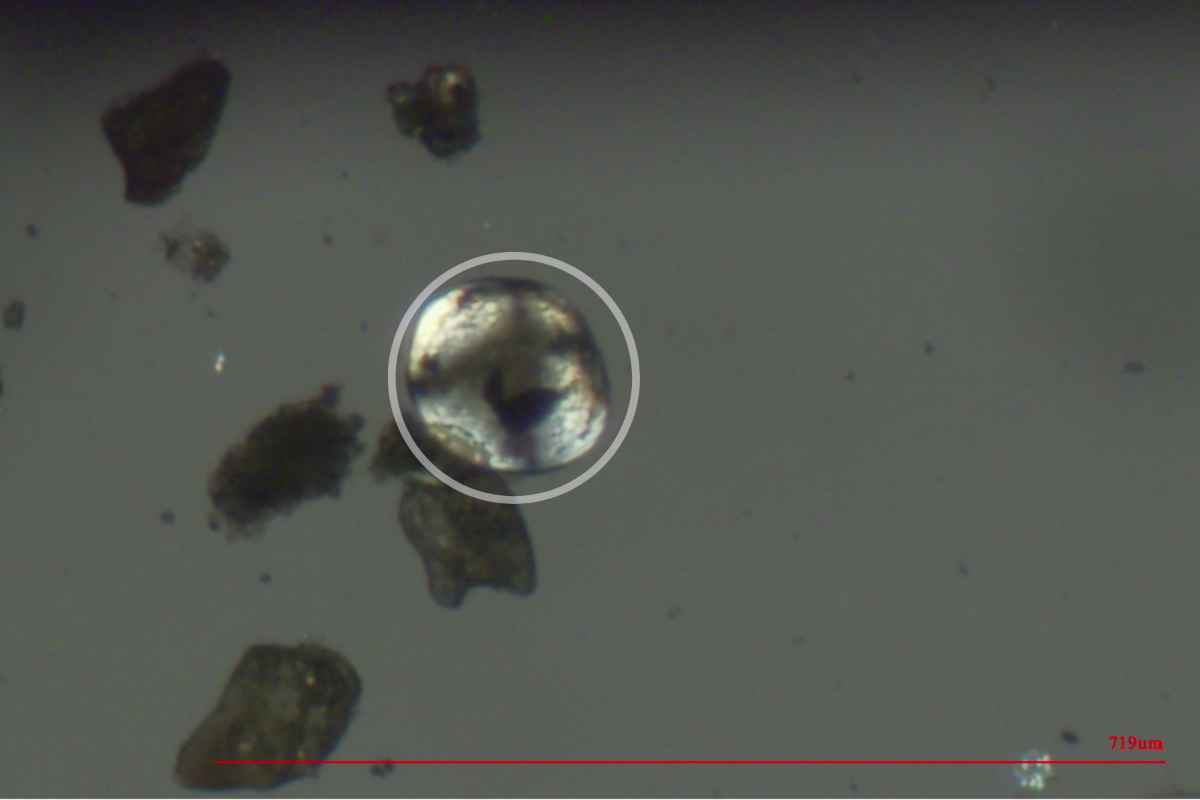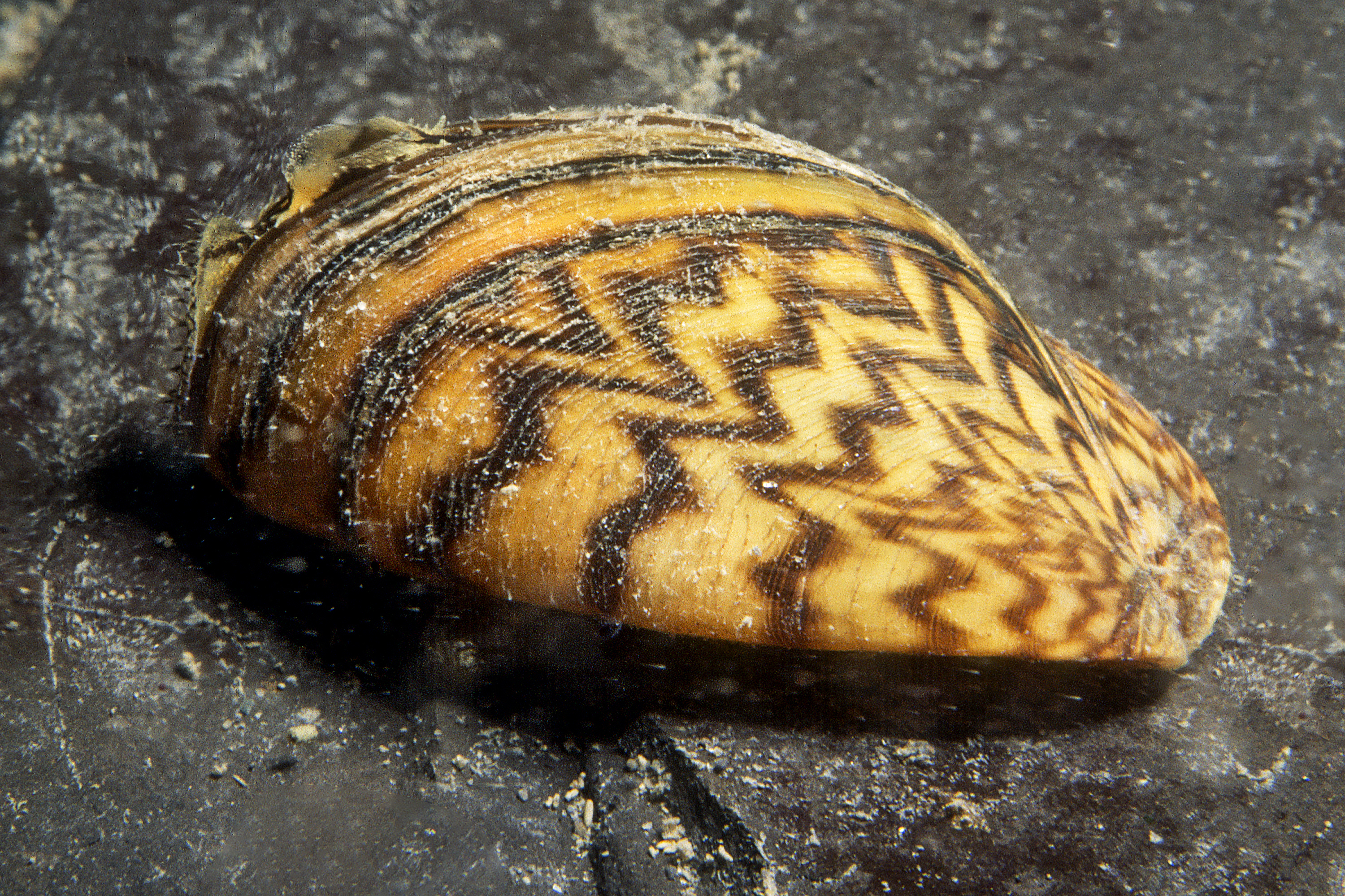A highly invasive species has been found colonizing the Colorado River, which could be catastrophic for native ecosystems.
The larvae of these invasive zebra mussels—known as zebra mussel veligers—were detected in river water, Colorado Parks and Wildlife (CPW) said in a statement.
This is concerning for conservationists, as the presence of zebra mussels in the Colorado River could have significant impacts on native fish populations, especially in areas of slower water movement.
“This challenging discovery has ecological and economic impacts not only on the Grand Valley but potential statewide impacts as well. CPW is committed to working with all of our partners as we work to better understand the extent of this discovery and the next steps in protecting the natural resources and infrastructure,” CPW Director Jeff Davis said in the statement.
Zebra mussels are small freshwater mussels native to the lakes of southern Russia and Ukraine. They arrived in the Great Lakes in the 1980s via international ships.
The mussels are small, usually less than 2 inches in length, and their shells have a distinctive striped pattern resembling the stripes of a zebra. This species reproduces rapidly, with a single female capable of producing up to one million eggs per year, allowing them to colonize new areas quickly.
ISTOCK / GETTY IMAGES PLUS
These invasive mussels harm ecosystems by outcompeting native species for food and space. Zebra mussels are filter feeders, removing plankton from the water that native species rely on, disrupting local ecosystems. In the Colorado River, native fish may be starved of their plankton diets due to the mussels gobbling up the plankton first.
“Zebra mussels pose an extreme risk of ecological impacts to Colorado. The establishment of zebra mussels in the Colorado River is likely to negatively impact native fish populations due to their filter-feeding strategies that strip essential prey items, such as plankton, from the water. Slower-moving sections of the Colorado River, such as pools, eddies, and backwaters, are especially prone to invasion,” the CPW said.
Only a single mussel veliger was found in two samples of river water, and no adult mussels were discovered. This means that the sampling locations are now considered “suspect” for zebra mussel presence. The CPW will now take more samples to determine if the river is “positive” for the mussels.

CPW
“We are disappointed in the situation we find ourselves in,” Ed Warner, area manager, BOR Western Colorado Area Office, said in the statement. “We know how much effort CPW has put into keeping the Colorado River clear of zebra mussels.
“This is an extremely difficult scenario for all who rely on the Upper Colorado River system. We look forward to partnering with CPW, our stakeholders, and all involved to do what we can to address the situation.”
The presence of these mussels in the Colorado would also have significant implications for infrastructure designed to pull water out of the river. The mussels bind themselves to surfaces using something called byssal threads, which are very hard to remove.
These byssal threads can clog water infrastructure, which would be detrimental to the river, especially when considering their rapid reproduction.
“This news is devastating,” Tina Bergonzini, Grand Valley Water Users Association General Manager, said in the statement. “Having our canal and the Colorado River test positive increases the threat of this invasive species and could impact everyone in the Grand Valley.
“From irrigation to drinking water, the ramifications cannot be underestimated or overstated. Our efforts, alongside our partners at CPW and the BOR, will be increased to protect our infrastructure, the livelihoods of so many, and water security for us all.”
Do you have a tip on a science story that Newsweek should be covering? Do you have a question about invasive species? Let us know via science@newsweek.com.
Uncommon Knowledge
Newsweek is committed to challenging conventional wisdom and finding connections in the search for common ground.
Newsweek is committed to challenging conventional wisdom and finding connections in the search for common ground.

